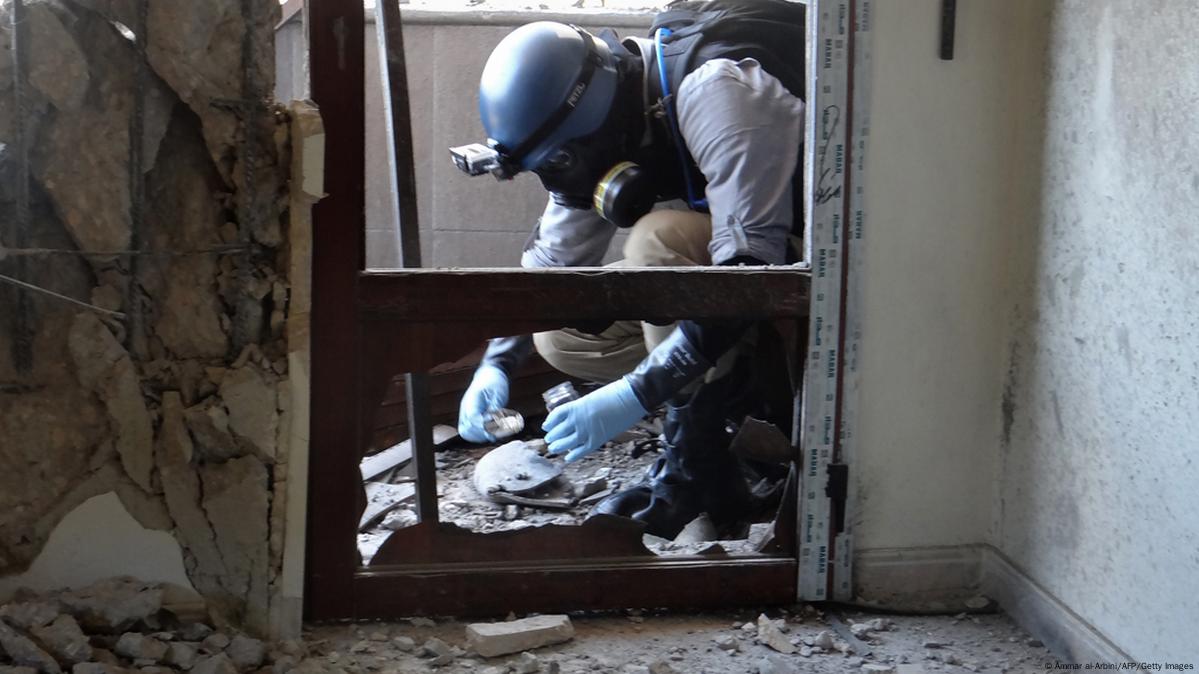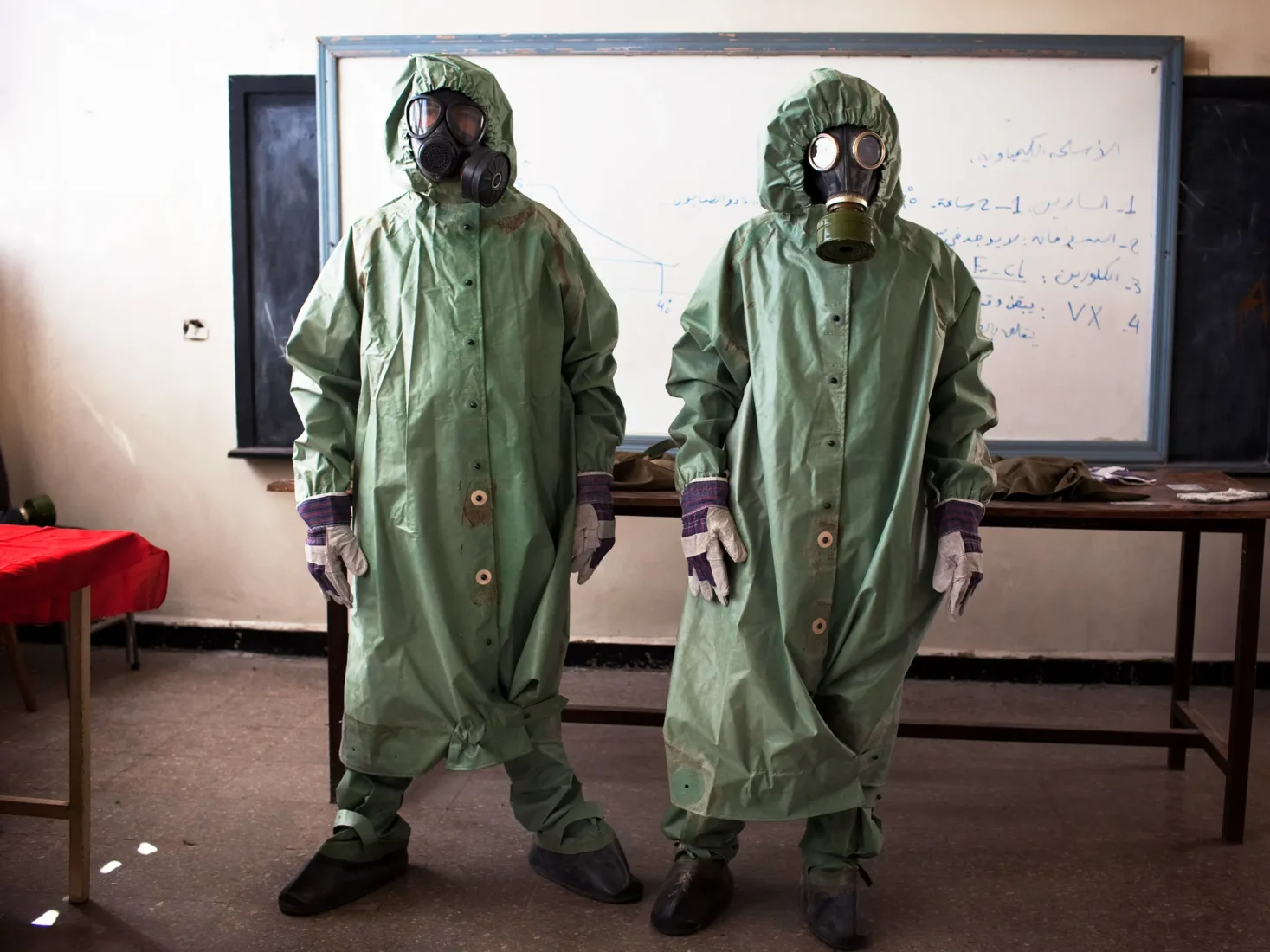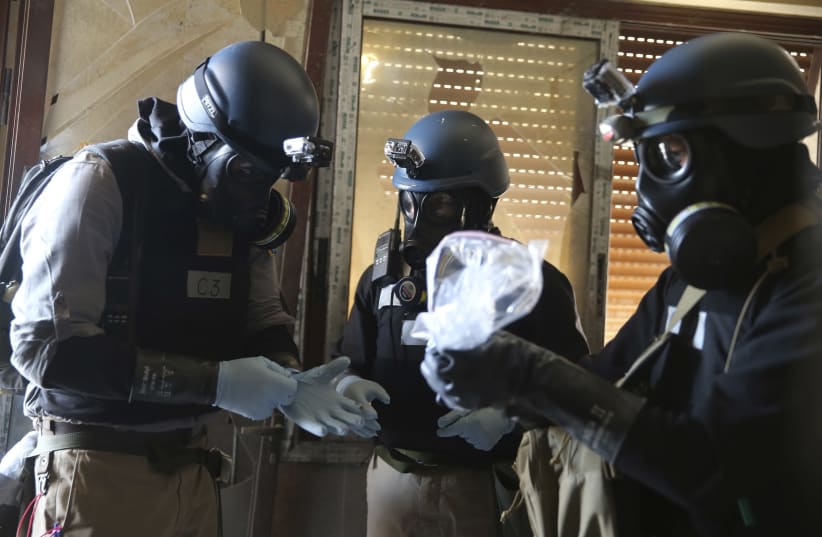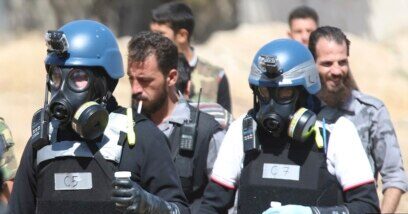
The United States, alongside partners in the Middle East, is intensifying efforts to ensure the chemical weapons once held by the Assad regime in Syria do not fall into the wrong hands.
A U.S. official speaking to Axios confirmed that ongoing operations aim to either destroy or secure dangerous materials like chlorine gas.
The Biden administration is reportedly coordinating with neighboring countries, including Lebanon, Iraq, Jordan, and Israel, to address the potential risks posed by Syria's chemical weapons.
President Joe Biden reaffirmed U.S. commitment to protecting these nations from threats originating in Syria.
https://twitter.com/SecBlinken/status/1865891829893284186
Secretary of State Antony Blinken stated that international efforts will continue to hold the Assad regime accountable for previous chemical weapon attacks.
We will be closely monitoring developments as they unfold and engaging with our partners in the region. We will support international efforts to hold the Assad regime and its backers accountable for atrocities and abuses perpetrated against the Syrian people, including the use of chemical weapons and the unjust detention of civilians such as Austin Tice.
We have taken note of statements made by rebel leaders in recent days, but as they take on greater responsibility, we will assess not just their words, but their actions.
We again call on all actors to respect human rights, take all precautions to protect civilians, and to uphold international humanitarian law.
Secretary of State Antony Blinken
 US President Joe Biden speaks about a ceasefire between Israel and Hezbollah in Lebanon, in the Rose Garden of the White House on November 26, 2024, in Washington, DC. - Biden on November 26 welcomed as "good news" a US and French-brokered ceasefire between Israel and Hezbollah in Lebanon. The deal will come into force on November 27 at 4:00 am local time (0200 GMT), Biden said, speaking at White House as Israeli Prime Minister Benjamin Netanyahu's office announced his ministers had approved the deal. (Photo by SAUL LOEB / AFP)" alt="US collaborates with partners to eliminate Syria's remaining chemical weapons">
US President Joe Biden speaks about a ceasefire between Israel and Hezbollah in Lebanon, in the Rose Garden of the White House on November 26, 2024, in Washington, DC. - Biden on November 26 welcomed as "good news" a US and French-brokered ceasefire between Israel and Hezbollah in Lebanon. The deal will come into force on November 27 at 4:00 am local time (0200 GMT), Biden said, speaking at White House as Israeli Prime Minister Benjamin Netanyahu's office announced his ministers had approved the deal. (Photo by SAUL LOEB / AFP)" alt="US collaborates with partners to eliminate Syria's remaining chemical weapons">
 US President Joe Biden speaks about a ceasefire between Israel and Hezbollah in Lebanon, in the Rose Garden of the White House on November 26, 2024, in Washington, DC. - Biden on November 26 welcomed as "good news" a US and French-brokered ceasefire between Israel and Hezbollah in Lebanon. The deal will come into force on November 27 at 4:00 am local time (0200 GMT), Biden said, speaking at White House as Israeli Prime Minister Benjamin Netanyahu's office announced his ministers had approved the deal. (Photo by SAUL LOEB / AFP)
US President Joe Biden speaks about a ceasefire between Israel and Hezbollah in Lebanon, in the Rose Garden of the White House on November 26, 2024, in Washington, DC. - Biden on November 26 welcomed as "good news" a US and French-brokered ceasefire between Israel and Hezbollah in Lebanon. The deal will come into force on November 27 at 4:00 am local time (0200 GMT), Biden said, speaking at White House as Israeli Prime Minister Benjamin Netanyahu's office announced his ministers had approved the deal. (Photo by SAUL LOEB / AFP)
Syria's use of chemical weapons has drawn widespread condemnation. Key incidents include:
International monitoring organizations, such as the Organization for the Prohibition of Chemical Weapons (OPCW), have documented repeated violations by the Assad regime.
 Experts charged with removing Syria's stockpile of chemical weapons may have to adopt an extremely flexible and even unorthodox approach to complete the disarmament within the given deadline. (Reuters Photo)
Experts charged with removing Syria's stockpile of chemical weapons may have to adopt an extremely flexible and even unorthodox approach to complete the disarmament within the given deadline. (Reuters Photo) Volunteers wear protective gear during a class of how to respond to a chemical attack, in the northern Syrian city of Aleppo on September 15, 2013. (AFP Photo)
Volunteers wear protective gear during a class of how to respond to a chemical attack, in the northern Syrian city of Aleppo on September 15, 2013. (AFP Photo) UN chemical weapons experts inspect alleged chemical samples from an attack in Syria, 2013. (AFP Photo)" alt="Syria's chemical weapons stockpile raises serious concerns: Watchdog">
UN chemical weapons experts inspect alleged chemical samples from an attack in Syria, 2013. (AFP Photo)" alt="Syria's chemical weapons stockpile raises serious concerns: Watchdog">
 Experts charged with removing Syria's stockpile of chemical weapons may have to adopt an extremely flexible and even unorthodox approach to complete the disarmament within the given deadline. (Reuters Photo)
Experts charged with removing Syria's stockpile of chemical weapons may have to adopt an extremely flexible and even unorthodox approach to complete the disarmament within the given deadline. (Reuters Photo) Volunteers wear protective gear during a class of how to respond to a chemical attack, in the northern Syrian city of Aleppo on September 15, 2013. (AFP Photo)
Volunteers wear protective gear during a class of how to respond to a chemical attack, in the northern Syrian city of Aleppo on September 15, 2013. (AFP Photo) UN chemical weapons experts inspect alleged chemical samples from an attack in Syria, 2013. (AFP Photo)
UN chemical weapons experts inspect alleged chemical samples from an attack in Syria, 2013. (AFP Photo)
Efforts to secure Syria's chemical weapons occur against a backdrop of intensified military activity: